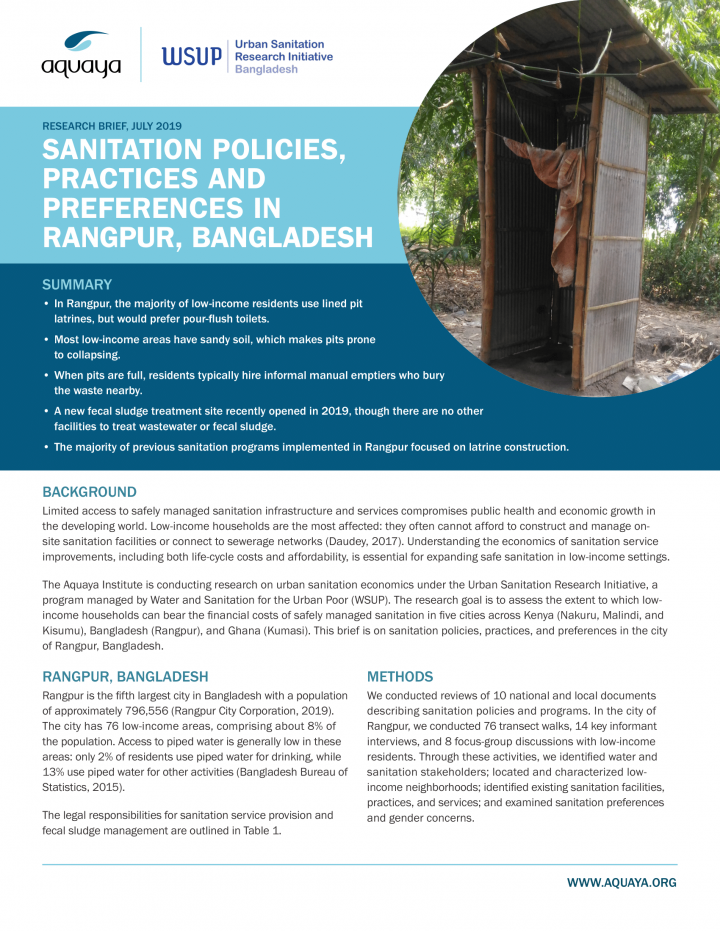
Published in: 2019
Pages: 3
Publisher:
Research Brief, The Aquaya Institute, mPower
Author:
The Aquaya Institute
Uploaded by:
Alicea Easthope-Frazer
Partner profile:
Aquaya Institute
2269 Views
39 Downloads
Location of library entry
The Aquaya Institute is conducting research on urban sanitation economics under the Urban Sanitation Research Initiative. This brief is on sanitation policies, practices, and preferences in the city of Rangpur, Bangladesh.
SUMMARY
• In Rangpur, the majority of low-income residents use lined pit latrines, but would prefer pour-flush toilets.
• Most low-income areas have sandy soil, which makes pits prone to collapsing.
• When pits are full, residents typically hire informal manual emptiers who bury the waste nearby.
• A new fecal sludge treatment site recently opened in 2019, though there are no other facilities to treat wastewater or fecal sludge.
• The majority of previous sanitation programs implemented in Rangpur focused on latrine construction.
Bibliographic information
The Aquaya Institute (2019). Sanitation Policies, Practices and Preferences in Rangpur, Bangladesh. Research Brief, The Aquaya Institute, mPower
Filter tags
East Asia & Pacific English Factsheets and policy briefs















